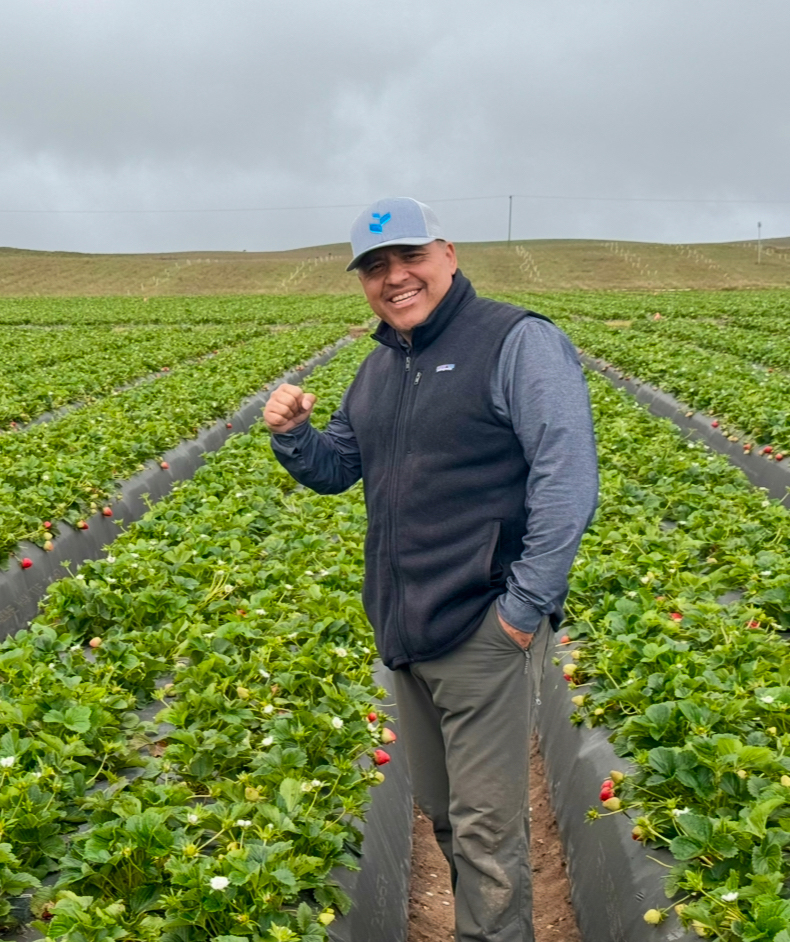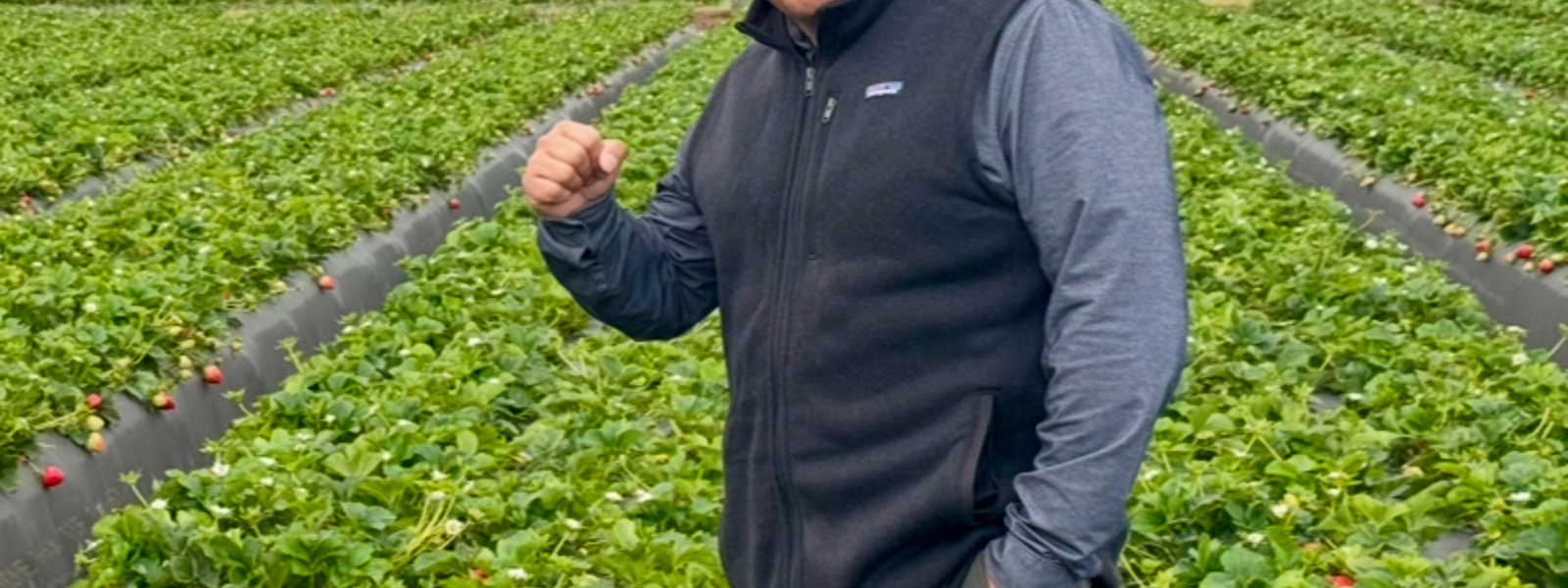From the Fields: José Ramírez, Monterey County Certified Crop Adviser

José Ramírez
Photo/Courtesy of Western Region Certified Crop Adviser

By José Ramírez, Monterey County Certified Crop Adviser
My day to day consists of visiting with Central Coast berry and vegetable growers and listening to their concerns about challenges they face to grow a good crop while being good stewards of the environment.
As a Certified Crop Adviser, I focus on the best return on investment to the grower. I believe it takes a commonsense approach to evaluate, diagnose and recommend what is needed, bridging the gap between soil and plants. Many times, my recommendations include going back to the basics. For example, picking your best ground for the most challenging crop or reduce water use.
The latest trend is the use of biostimulants as California has announced them as beneficial substances. One of the many tasks is to screen them for efficacy for more than one season in different crops, soils and microclimates. The majority of biostimulants are plant extracts, but some have macronutrients and/or secondary nutrients like calcium and magnesium.
One of the biggest pest problems is the two-spotted spider mite, and the other is lygus. In the disease world, you have a lot of problems with pathogens—fusarium, macrophomina and phytophora.
To battle these, when you plant a berry or lettuce field, transplants are dipped in a solution of amino acids, microorganisms or pest-specific synthetic products. The follow-up is to continue to fertigate with these types of inputs and/or products categorized as biocontrol agents. This practice helps create a healthy soil environment for the root to grow.
There are biofungicides or microorganisms that are registered with EPA for this specific purpose. The idea is to have biodiversity and use of an integrated approach. Biodiversity is key, so integrating many types of products goes a long way.
Farmers have been sustainable for years. If not, they wouldn’t be here. We as crop advisers are helping them be more sustainable by the transfer of technology. As CCAs, we are always going to seminars and evaluating products and taking a hands-on approach.




